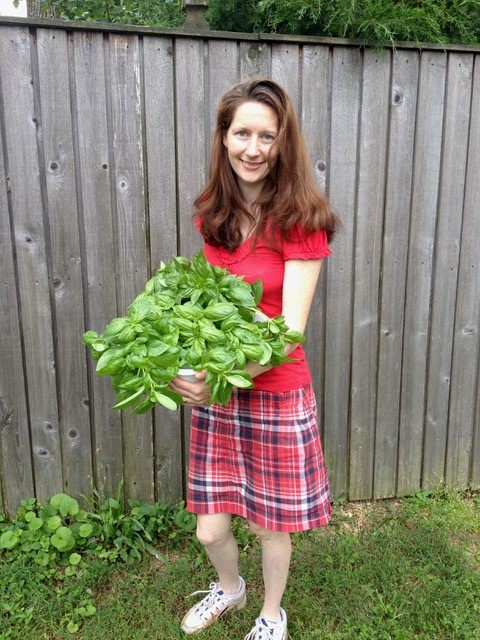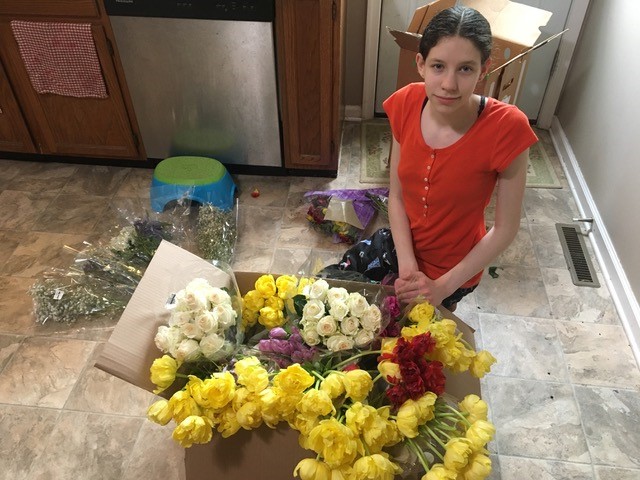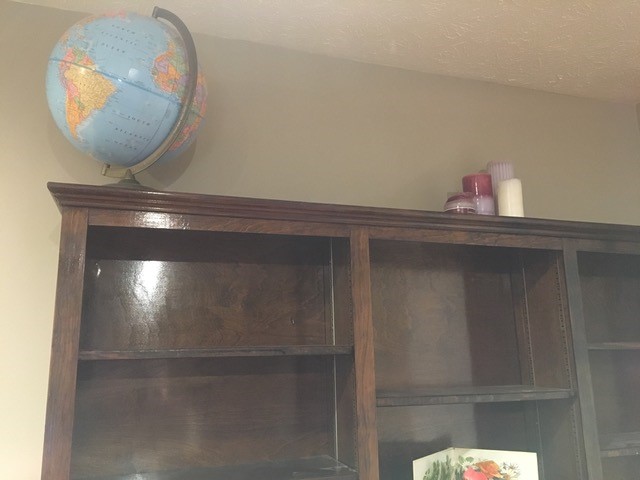Once again we’re approaching garden harvest season. Each year when we plant, we seem destined to vacillate between feast and famine. Plant just enough crops for our family’s anticipated need, and the groundhogs, rabbits, and squirrels will inevitably eat every last one; but if we over-plan and over-plant to outpace the critters, we end up with far more than we can manage.

A bounty of basil.
Such abundance, of course, lands us in the delightful situation of saving whatever we can for later while sharing whatever we can spare with others. Or, as the old homesteading adage goes, “We eat what we can, and we can what we can’t.” I don’t can, so our “save for later” stock is limited to what will fit in our freezer.
I always loved reading about the Ingalls family’s thrift and industry in laying by provisions for the winter in the Little House books, and while our survival nowadays doesn’t depend on preserving enough food to last us until the next harvest, I do enjoy paying tribute to our pioneer forbears by saving up what we can. It’s simply a matter of saving grocery money, though, not a hedge against starvation during the lean months. One of the most satisfying consequences of a bumper year, therefore, is the ability to share our overflow with others.

There is sometimes a fine line between reasonable conservation and excessive hoarding. It’s certainly wise to consider setting aside what we know we can use in the future, but how much represents a prudent amount of preparation, and how much saving is just being greedy? I’ve often wondered whether the distinction rests on absolute need (how much manna can you eat in one day?) or perhaps one’s intentions (do you trust God to provide all your needs?) as I can make a good case for both.
The feast or famine dilemma applies to other areas of life as well. How much of a stockpile does any one person or any family need? Although I hate clutter, I used to err on the side of holding things closely lest I’d need them later, and indeed this philosophy probably served me better in my younger days when I had a more pressing need for thrift and making do. Not spending money, at the time or down the road, was a major motivator.
But nowadays I’m leaning much more towards the “cast your bread upon the waters” mentality. Perhaps it’s because I’ve learned that we really can get by without so much stuff, or perhaps it’s that I’ve had ample opportunity to observe how things can turn up just fine when we need them. (It’s easier to donate excess possessions when we know another clothing exchange is just around the corner.)
Moving to another country for an indefinite period of time helped us get rid of a lot of driftwood. We packed up a few sentimental items (and all our books, of course) to store with family, and proceeded to give away an incredible amount of stuff, without which we discovered we could manage quite well. We lived a very scaled-down life, and I kept thinking that we needed to live like that always, but somehow the detritus creeps back in.

Shockingly empty shelves!
When our Book Tea group read the humorous book Three Men In A Boat, I was profoundly struck by the following discourse:
George said: ‘you know we are on the wrong track altogether. We must not think of the things we could do with, but only of the things that we can’t do without.’
George comes out really quite sensible at times. You’d be surprised. I call that downright wisdom, not merely as regards the present case, but with reference to our trip up the river of life generally. How many people, on that voyage, load up the boat ‘til it is ever in danger of swamping with a store of foolish things, which they think essential to the pleasure and comfort of the trip, but which are really only useless lumber . . .
It is lumber, man—all lumber! Throw it overboard. It makes the boat so heavy to pull, you nearly faint at the oars . . . Throw the lumber over, man! Let your boat of life be light, packed with only what you need.
That passage has stayed with me through various travels, travails, and trimming of sails, and I find myself returning to it whenever I think about what I really need to get on agreeably in life. What might be a comfort to us could be a necessity to someone else, and I don’t want to get bogged down with ballast which could prove a blessing to another. May we always remember to give as freely as we have received.
-Rose

